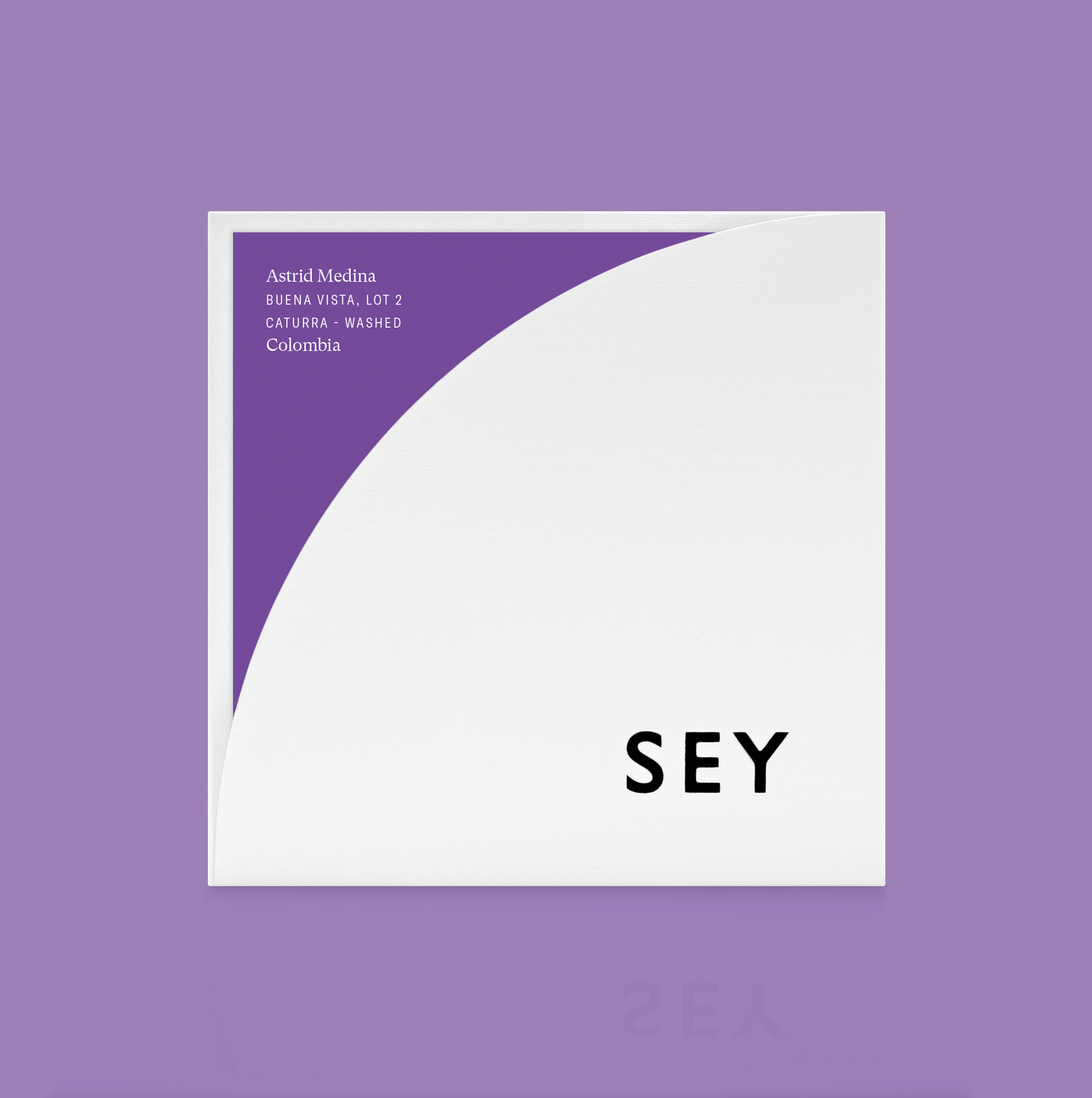
Astrid Medina is a force of a coffee producer and an invaluable leader in her community. Since winning the Colombian Cup of Excellence in 2015, she has consistently produced coffees of remarkable quality year after year. In this cup we find rich dark chocolate, fresh raspberries, and notes of pastry.
Caturra
Gaitania, Planadas, Tolima
2,000 masl
August, 2021
Hand picked at peak ripeness. Floated to further remove defects and depulped on the day of harvest. Dry fermented for 35 hours. Dried on raised beds for 30 days.
ABOUT ASTRID MEDINA
We met Astrid at the first Acevedo Cup we participated in around six years ago. She was traveling with Alejandro Renjifo and his exporting company Fairfield Trading in order to share insights and techniques to producers in the region. She is highly ambitious, and is constantly learning and improving year after year. Her main goals are to continue improving the quality of her coffee while minimizing negative environmental impact. She is especially interested in sustainable farming practices using little or no chemical inputs, and improving soil health through the planting of native plants and trees. She has also started teaching her neighboring producers how to improve their quality and avail themselves to the specialty market. Her contribution to specialty coffee within the region of Gaitania cannot be overstated, and it is a true honor to work with her coffee.
ABOUT CATURRA
Caturra is a natural mutation of the Bourbon variety. It was discovered on a plantation in the state of Minas Gerais in Brazil sometime between 1915 and 1918. Today, it is one of the most economically important coffees in Central America, to the extent that it is often used as a benchmark against which new cultivars are tested. In Colombia, Caturra was thought to represent nearly half of the country’s production before a government-sponsored program beginning in 2008 incentivized renovation of over three billion coffee trees with the leaf rust resistant Castillo variety (which has Caturra parentage).
Pricing Details
Farm Gate (Local)
2MM COP/Carga
Farm Gate (USD)
~$5.35/KG
FOB
$9.88/KG
FOT
$12.11/KG
The cost of getting a coffee from cherry to beverage varies enormously depending on its place of origin and the location of its consumption. The inclusion of price transparency is a starting point to inform broader conversation around the true costs of production and the sustainability of specialty coffee as a whole.